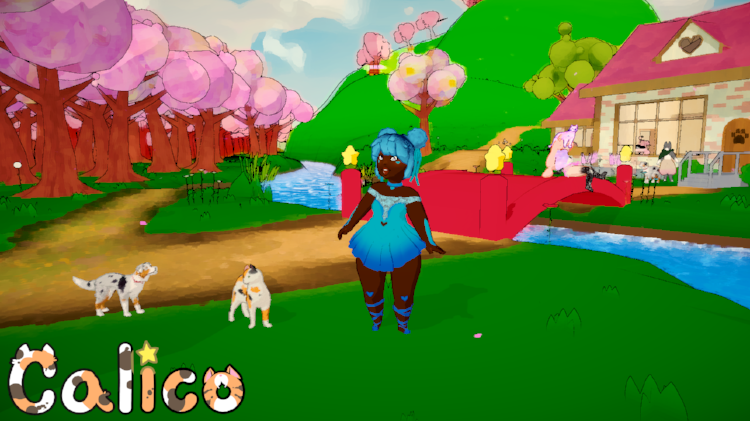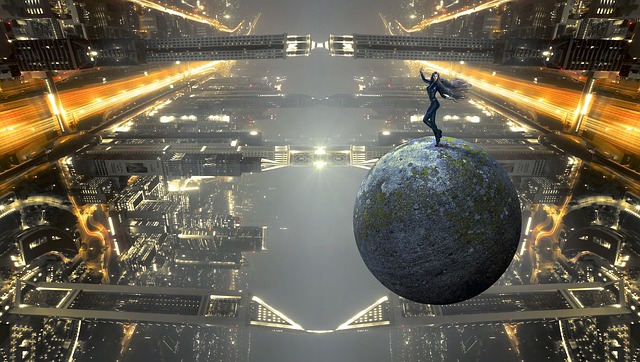Interview by Ninichi | Contact | Follow
Towards the end of last year, I had the pleasure of working on the music to an inspiring short film called The Waiting Room. I connected with experienced filmmaker Dexter Goad, who runs ShadowDogProductions, and am now excited to share with you a short interview with him, which offers some insight into the thinking behind this production...
Who are you and how did you get into film production?
'My name is Dexter Goad and I've been writing, producing, and Directing films for 15 years. I got into filmmaking because I tried getting my novels published for 10 years to no avail. So I looked into getting one self published. What I discovered is that if you finance your own novel you're considered a hack, pathetic, a loser. Your novel isn't good enough so you had to pay for it yourself. However, if you finance your own music album, your own paintings, your own movies, you're respected as an artist MAKING IT HAPPEN! I've never figured out why this hypocrisy exists, but its a real thing. So, at the time, I was young and I cared what people thought of me & I didn't want to look like a loser. So, I decided to finance a film based on one of my short stories instead of finance the publication of one of my novels. The film turned out horribly, but I discovered I loved filmmaking way more than I'd ever loved novel writing and I've never looked back.'
Wow amazing! Thanks for sharing your story with us. Let's now take a look at your short film The Waiting Room. What can you tell us about it?
'Waiting Room is about how we lie to our loved ones to "protect" them. How that can be good or bad, and how our loved ones can often figure out that we're hiding something despite our best efforts. In my experience, people who lie to protect their loved ones are almost always doing so to protect themselves as well.'
Who's involved in the film?
'The only nationally known actor in this is Lilianna Ketchman, from the reality show "Dance Moms." She's only ten years old and her background is in dance, but she has an innate ability to act that I think people are going to be impressed by and enjoy. She was impressive enough to me that I shot another short film with her right after Waiting Room and she will be my lead in a mid sized budget horror film we're shooting this summer called "Death's Delay."'
Where did the inspiration for The Waiting Room come from?
'I thought it would be interesting to explore the concept that everybody in a medical waiting room has their own story and in most cases they're going through something stressful or they wouldn't be there. Even if you're just there for a routine checkup, you're always afraid that they'll find something bad. If you could see stress as a visible thing, I'd imagine a hospital waiting room would be the most thick with it. After this I added in the layer about lying and protecting people with your lies.'
What do you hope people will take away from it?
'I don't approach my work in this way. My approach is always to pour as much of myself into the writing and production of a work, then get out of the way and see what happens when people experience it. Because what invariably happens is people will take things from you'd never imagine or expect. That's a really fun part of the process for me.'
Awesome. Thanks for sharing your thoughts on this. Now let's talk about music! What part does the music play in a film do you think?
'Music in film is like clothes:
- Absolutely vital part of the process
- Can't imagine it absent
- When it's working properly, it accentuates what's there, hides what's necessary, reveals what's desired to be revealed, but doesn't get in the way.
- You should never be conscious of it being present
I often talk about why filmmaking is the best creative field because its the ONLY creative field that uses all other creative fields. You have writing, acting, music (writing and performing, including singing), photography, sculpture (set building and props), architecture (set building), painting, makeup, hair dressing, clothes making, dance (straight or as stunt choreography), and technically creative fields such as computer graphics and design, editing, and color correction. Literally any creative field you can imagine has been used in film somewhere at some time. I love collaborating with creative people in all these different fields, but I must admit that musicians are some of my favorite people to work with. Probably because I don't have a lick of musical talent myself but wish I did. I'll be producing a musical short film this year and I can't wait.'
How about in Waiting Room?
'For Waiting Room I needed music specifically composed to the footage because it's such an intimate, personal story - (sometimes you can buy precomposed tracks and drop them in and it's fine for certain types of projects, but this is a character driven piece, so it was important that the music be specific.) Which is why I sought out a professional like Ninichi and I'm very glad I did.'
It's been amazing working with you on the music to the film. Thanks for trusting me with it. Here's a sneak preview (on the right) of some for the music for those wanting to have a little listen.
Now onto other things. What were the biggest challenges in creating Waiting Room?
'This was actually a very smooth, easy shoot. I've been doing this a long time and there used to be some major struggles getting the days shot, but since about 2014 the accumulation of experience and adding really good crew members to the team have combined to streamline the process. For instance, it was nothing in early years to start at 8am and not finish until midnight and that with having had to forgo several shots we really wanted. In the past few years we've been able to start at 9am and finish around 7pm. So it was with Waiting Room. Experience really can be the best time saver there is.
It all starts with the writing. I knew I wanted to shoot this in a single day, so I wrote what I knew we could get within that time frame.
Even the post production has been without drama because the music came together really fast and our color correctionist is somebody I've known a long time and is really good.'
Where can watch it?
'We'll be doing a special internet premiere within the next couple months. Stay tuned.'
How exciting! We'll definitely keep a look out for that. Also, are you working on any other films and if so, where can find out more?
'We've always got something going on. You can follow me on Instagram or Twitter at ShadowDogProd'
About the Author:
Ninichi is a freelance composer, creating music for film, games and other media. She has worked on a wide range of projects and is available to commission now. She creates custom music for films, commercials, tv shows and more, and also have a catalog of music available to license.
Discover more of her film music or explore her royalty free music now.
























